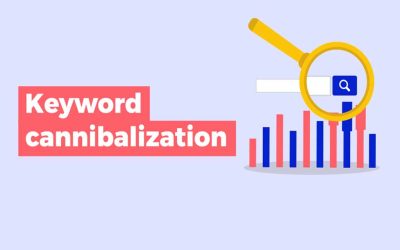What is Search Intent?
Search intent is a very complicated topic that can be difficult to understand. In this article, we will discuss the many different types of search intent and how they affect your marketing strategy.
We will also give you some tips on how to use this information for your own website. Let’s get started.
What is Search Intent?
The intent of a search is the reason why someone is performing that particular search. This can vary from person to person, and it can also change depending on the context of the situation.
For example, let’s say you are looking for information about a new product. Your intent might be informational, but if you are ready to buy that product, your intent would be transactional.

Search Intent
What are the Different Types of Search Intent?
There are three main types of search intent: informational, navigational, and transactional.
Informational Intent:
People who have an informational intent are just looking for information. They aren’t necessarily looking to buy anything, and they may not even know what they’re looking for yet.
In most cases, these people will use general keywords or phrases to search for content.
For example, someone might perform a Google search with the keywords “how old is Taylor Swift.” They are looking for information about Taylor’s age and how it relates to other relevant topics like her music or awards she has won.
Navigational Intent:
People who have navigational intent know what they’re looking for but aren’t sure where that information can be found on the web.
These people will use specific keywords or phrases in their searches because they already know which website(s) they want to go to based on these results.
For example, let’s say someone needs the contact details of an attorney so they type in “Wong & Associates” into their browser bar instead of using general terms like “attorney” or “lawyer.”
Transactional Intent:
People who have transactional intent are looking for a specific product and want to buy it. These searches will usually include keywords like best, cheap, lowest price, etc.
When someone is ready to make a purchase of any kind they typically use these more direct terms because they know what they’re looking for and where they can get it from.
For example, let’s say someone wants the cheapest tickets possible for an upcoming concert so they search on Google using “best priced Taylor Swift Concert tickets.”
This covers the main three types of search intent but there are also other factors that need to be taken into consideration when you conduct your marketing research such as trends and user behavior in general.
How Does Search Intent Relate to SEO?
Informational intent is the easiest type of search intent to rank for because most websites don’t have a transactional or navigational purpose.
These sites are typically full of information and they never expect anyone who visits them to make a purchase or seek out specific information. That means that if you target informational keywords, your site will be easier to find on Google which in turn increases your rankings.
Navigational searches can also provide high visibility but it takes more work than just focusing on informational terms because these people already know where they want to go before they perform their search so there has been some research involved beforehand.
Transactional searches are those types of queries with direct buying intentions and may be the most difficult to rank for.
Ready to Get Started?
Search intent can make or break your SEO campaign. If you need help in this area, contact us today to speak to a member of our team.




